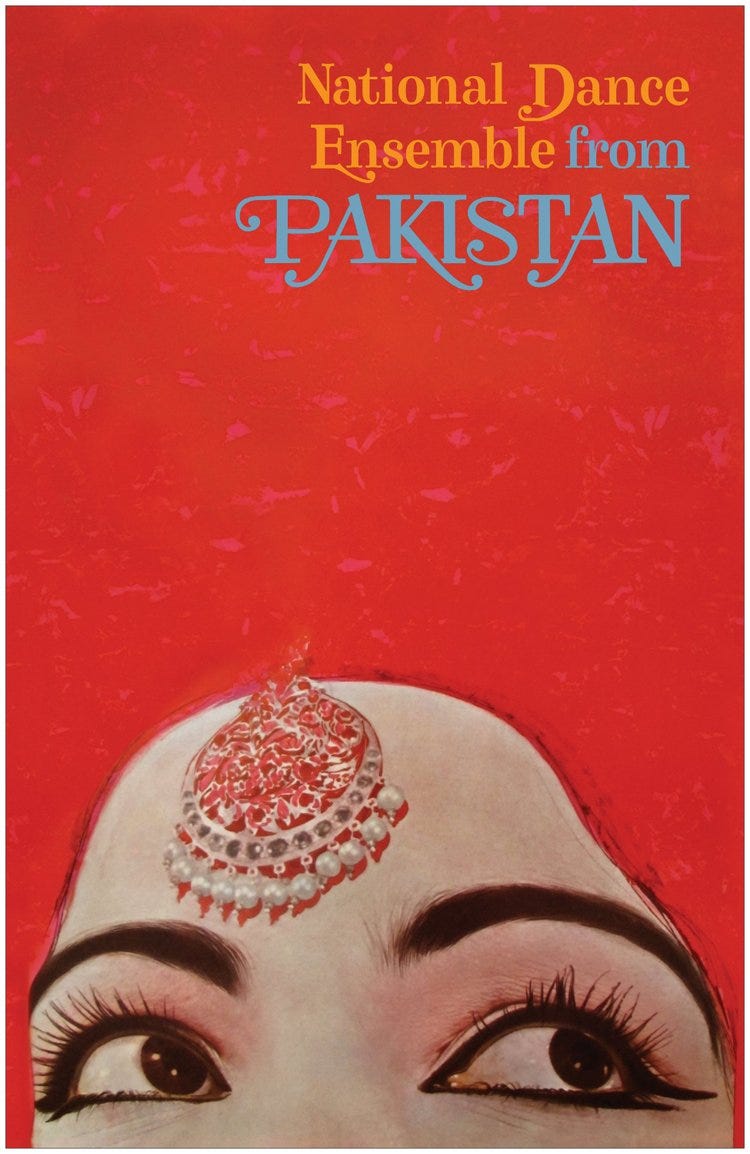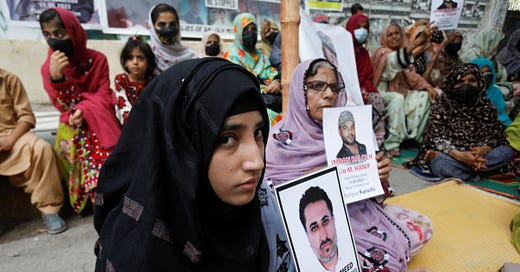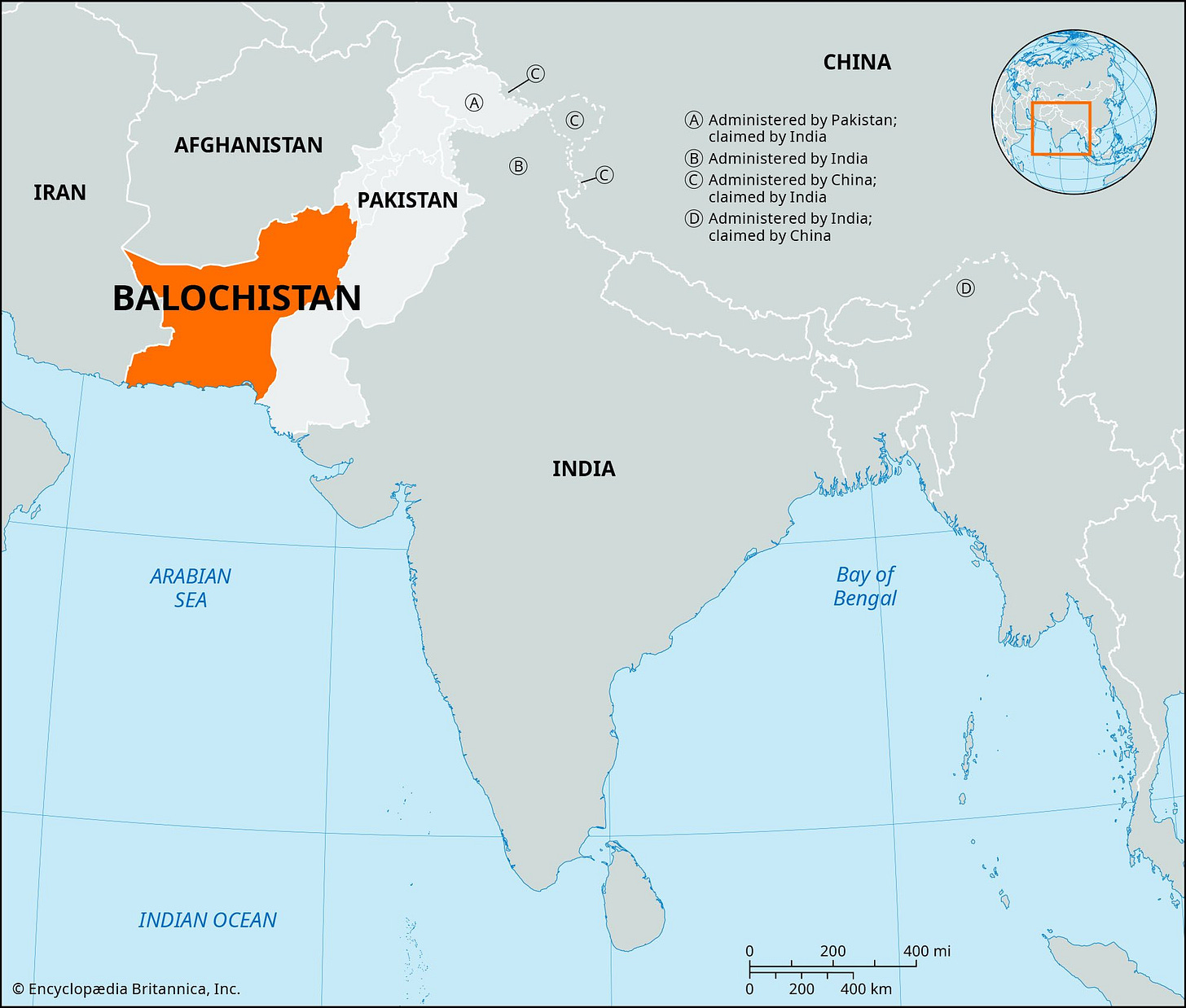Balochistan’s Enforced Disappearances: A curse Pakistan brought upon itself
Words by Aleezeh Fatimah
Welcome to the Brown History Newsletter. If you’re enjoying this labor of love, please do consider becoming a paid subscriber. Your contribution would help pay the writers and illustrators and support this weekly publication. If you like to submit a writing piece, please send me a pitch by email at brownhistory1947@gmail.com.
Don’t forget to check out our SHOP and our Podcast.

Balochistan’s Enforced Disappearances: A curse Pakistan brought upon itself
On a chilly night in Islamabad, the streets typically empty out by 8 pm. But during winter, it gets quiet even earlier. The city, usually hushed, seems to embrace the stillness of the night, almost like the scenes from Parveen Shakir’s poetry. However, if you listen closely, you can hear the cries and appeals of those who have endured oppression. No longer willing to remain silent, they break through the stillness with the unwavering power of their voices.
These voices you hear belong to Baloch women. They're wrapped up in chaddars and dupattas, sitting outside, facing the unforgiving weather – it could be risky, but fear doesn't seem to touch them. They've already faced their worst fears – the loss of a beloved. These courageous Baloch women have endured the agony of waiting for their brothers, fathers, and sons to return. Now, in unwavering defiance, they stand against the epidemic of enforced disappearances that has afflicted their region.
In Balochistan, an area facing significant human rights issues, women lead the fight for justice. From November 23, 2023 till January 23, 2024 hundreds of women, whose family members have disappeared, marched over 1,600 kilometers from the Kech district to Islamabad, the capital of Pakistan. They demanded an end to enforced disappearances, extrajudicial killings, and accountability for those responsible. However, due to no positive response from state, judiciary and law enforcement forces, they have now decided to end the sit-in.
The movement started after the killing of a 24-year-old man named Balaach Mola Baksh, who was taken by counterterrorism police from his home and later shot dead during an operation. This incident sparked widespread anger, leading to a week-long protest in Turbat, the second-largest city in Balochistan, where the community demanded justice.
Balochistan has a long history of protests, but what makes this movement quite unique is the significant participation of young women. This is unusual in a conservative and tribal region. Enforced Disappearances are defined as the prolonged arrests, where the whereabouts of the prisoner are unknown to his family. Usually, the armed forces pick up people at odd times, and later either they stay missing for years, or their dead bodies are found from unusual places. When a missing person is killed in custody, it is termed as extrajudicial killing.







